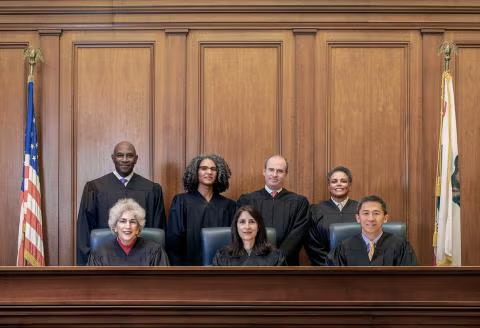Governor Signs PAGA Reform Bills to Ease Burdens on Employers
California’s Private Attorneys General Act (“PAGA”) deputizes any employee who has experienced a violation of virtually any state employment law to sue to recover penalties arising out of violations he or she experienced – plus penalties arising out of violations committed against every one of his or her coworkers, and attorneys’ fees.
The potentially massive liability under PAGA has been a nightmare for many California employers, making the PAGA law a target of lobbyists and industry groups since its inception. Recently a PAC known as Californians for Fair Pay and Accountability – with support from organizations including the California Chamber of Commerce and the California Business PAC – gained approval to include an initiative on the November 2024 ballot that would have repealed PAGA entirely.
With the threat of a full-blown PAGA repeal vote looming, the groups trying to repeal PAGA and those in favor of keeping PAGA (mostly state legislators and labor groups) began discussions to try to reach a compromise. In June 2024, the two sides reached a compromise — PAGA would continue to exist, and employees would continue to be able to bring PAGA claims, but the law’s most onerous, anti-business terms would be revised to lower the penalty amounts and give employers more time to cure violations, among other changes.
A.B. 2288 and S.B. 92
The legislature wrote these PAGA compromises into new bills, A.B. 2288 and S.B. 92, which were passed by the legislature on Junes 27, 2024. Governor Newsom signed both bills into law on July 1, 2024.
Here are the most important changes to PAGA, which will apply to all PAGA cases filed on or after June 19, 2024 (as long as the underlying claim notice to the Labor & Workforce Development Agency (“LWDA”) was submitted no earlier than that date):
New Limitations on Penalties, Greater Share Given to Employees
The most significant amendments will likely dramatically decrease employers’ exposure, while also giving successful plaintiffs a higher percentage of penalty awards than in the past. First, penalties are capped for employers who can show they have worked to comply with the law. Specifically, where an employer has taken “all reasonable steps” to comply with the Labor Code provisions addressed in a PAGA claim notice before receiving that notice, penalties are capped at 15% of the statutory maximum. A 30% cap will apply where an employer takes all reasonable steps to comply within 60 days after receiving the claim notice. The amendments are not entirely clear as to what constitutes taking “all reasonable steps;” such steps include but are not limited toconducting periodic payroll audits and taking any necessary corrective action based on the findings of the audits, providing employees with written, lawful wage and hour policies, and training supervisors on wage and hour requirements.
Second, several categories of penalties are reduced or eliminated entirely. For instance, penalties for failing to include certain information on employees’ wage statements are reduced from $100 to $25 per employee, per pay period – but only if the employee could promptly and easily determine from the wage statement alone the allegedly missing information. (Given this limitation, it seems unlikely that this provision of the amendments will have much practical impact.) More significantly, no “derivative” penalties for failure to timely pay wages or for providing inaccurate wage statements – i.e., penalties resulting solely from an underlying claim for unpaid wages or premium pay – will be awarded, if the underlying penalties were not willful or intentional. And penalties for violations resulting from an “isolated, nonrecurring event” that did not last beyond 30 consecutive days or four consecutive pay periods (whichever is less) are capped at $50 per aggrieved employee per pay period. Further, if an employer participates in the LWDA’s newly established “early evaluation conference” procedure, in which a neutral evaluator works with the parties to assess the strengths and weaknesses of their positions, whether any violations can be cured, and whether the case can settle, the maximum penalty for most violations is just $15 per aggrieved employee per pay period – and in some circumstances can be reduced to $0.
Third, potential penalties against employers who pay their workers weekly are reduced by 50%. Most PAGA penalties are incurred “per employee, per pay period” – meaning that under the prior version of the law, the exact same violations could expose employers paying weekly to more than double the penalties incurred by an employer who paid its workers twice a month. The PAGA amendments remedy this potential unfairness.
Finally, in the past, aggrieved employees received just 25% of PAGA penalties, with the remainder being paid to the LWDA. Under the new amendments, the penalties are now divided 35%-65%, between the aggrieved employees and the LWDA, respectively.
Stricter Standing Requirements
In the past, PAGA allowed plaintiffs to seek penalties for a remarkably wide array of alleged violations, even if the plaintiff didn’t even claim to have personally experienced the violations – and even if he or she didn’t work for the employer during the time period covered by the statute of limitations. That is, if a plaintiff alleged s/he had been subjected to just a single instance of a violation of just one employment law, s/he could sue for penalties arising out of all manner of legal violations committed against all of his/her coworkers. In addition, according to at least one court, a plaintiff whose own claim for penalties was time-barred could sue for penalties arising out of legal violations committed against others who had worked for the employer more recently, long after the plaintiff’s employment ended. In other words, a plaintiff whose employment with the defendant ended years before filing suit could seek penalties based on violations against other employees committed within the year before the suit was filed – even though the statute of limitations would prevent the plaintiff from sharing in any award of penalties! The PAGA amendments eliminate both of these types of lawsuits: plaintiffs now have standing to seek penalties arising only out of types of violations they personally experienced, during the one-year period before bringing their PAGA claims.
More “Manageability” Options for Courts
PAGA actions can be difficult and unwieldy – they can involve numerous categories of employees from different worksites and with working conditions, as well as alleged violations of multiple Labor Code provisions. The California Supreme Court recently held that trial courts cannot dismiss a PAGA claim based solely on these so-called “manageability” concerns, but they can use a variety of tools to streamline and control proceedings. The new PAGA amendments provide additional guidance concerning those tools, which include (for example) limiting the scope of the PAGA claim that can be presented at trial, using surveys and other types of representative evidence rather than attempting to obtain evidence from or concerning each potentially aggrieved employee, and consolidating or coordinating PAGA cases that include overlapping claims against the same employer.
Employers, Take Action!
Note that the full extent of the changes these amendments bring to PAGA litigation is beyond the scope of a simple blog post – we encourage you to consult with knowledgeable employment attorneys to get all the details that could impact your business. In addition, employers should proactively review their wage-and-hour policies and practices and endeavor to ensure compliance. In addition, any employer who receives a PAGA claim notice should carefully review it – with qualified counsel – to take advantages of the newly-enacted cure and early evaluation options to minimize the potential exposure.
Insights
OUR BLOG


